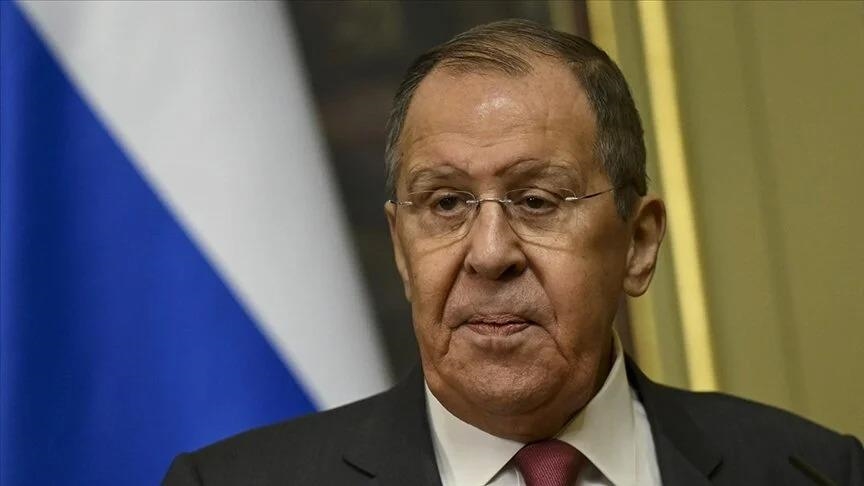Lavrov says China invented 'double counteraction' to counter West's 'double deterrence'
Russian, Chinese top diplomats discuss conflicts in Gaza, Ukraine

ANKARA
Russian Foreign Minister Sergey Lavrov said Tuesday that his Chinese counterpart, Wang Yi, "invented" a new formula -- "double counteraction" -- in response to the policy of "double deterrence” by the West.
Speaking at a news conference in Beijing on the outcome of a meeting with Wang, Lavrov said that Wang meant it is a counteraction to economic problems created by sanctions.
"I won't give away a big secret, yesterday, Chinese Foreign Minister Wang Yi invented the formula 'double counteraction against double deterrence,’” he said. “My colleague spoke in detail about the specific economic problems created as a result of the illegal policy of unilateral sanctions. ... We will solve them ... within other structures.”
Lavrov cited the BRICS economic bloc and the Shanghai Cooperation Organization as platforms that may serve to address such problems as switching to payments in national currencies and the establishment of alternative payment platforms.
He emphasized that by weaponizing the global financial system, the West showed the entire world that no one is insured against being "punished" with it in case of disagreements on certain issues.
Lavrov arrived in China for a two-day visit on Monday, with the two countries looking to strengthen ties and strategic cooperation.
The two sides agreed to discuss ways to deepen security cooperation across Europe and Asia to counter US attempts “to impose its will on the region,” said Lavrov.
He said Beijing and Moscow have agreed to "start a dialogue with the involvement of our other like-minded people on this issue."
Pointing to Western pressure on both countries, he condemned "unlawful sanctions" which he said violated “international norms in a rude manner.”
This policy, he contended, is starting to be actively applied toward Beijing.
Lavrov alleged that the West is seeking to impede China's "economic and technological development opportunities, to put it simply in order to eliminate the competitors."
Conflicts in Gaza and Ukraine
Wang, at a press conference following bilateral talks with Lavrov, said the two sides discussed the raging conflicts in Gaza and Ukraine.
"As a force for peace and stability, China will stick to playing a constructive role on the international stage ... and will never add fuel to the flames," he said.
He said Beijing and Moscow should oppose "hegemonism" and "any 'small circle' that engages in bloc confrontation."
“We must oppose all acts of hegemony, tyranny, and bullying; oppose Cold War thinking and separatist provocations; and actively push for the construction of a common future for all humankind," Wang maintained.
"NATO should not extend its hand to our common homeland," he added.
Beijing, he added, would strengthen strategic cooperation with Moscow, and the two countries must stand on the side of "fairness and justice."
The two sides also had in-depth exchanges of view on the Ukraine issue, the Palestinian-Israeli conflict, the situation in the Asia-Pacific region, and other international and regional issues of common concern, Chinese state-run Xinhua News reported.
Lavrov said the topic of a Middle East settlement and what is happening around the Gaza Strip was discussed "in detail."
"We also have common positions here, which we defend in the UN Security Council," he said.








